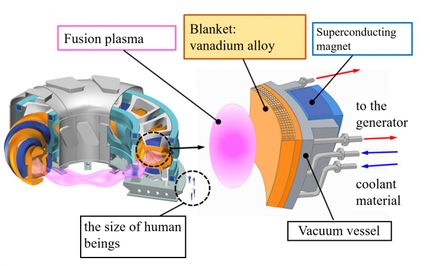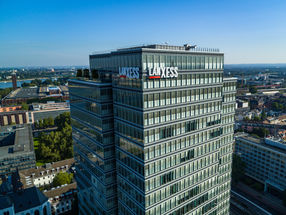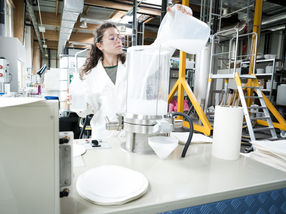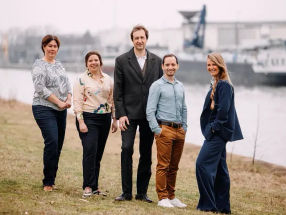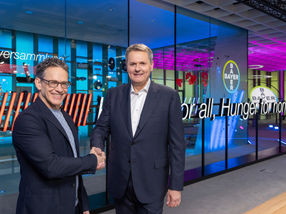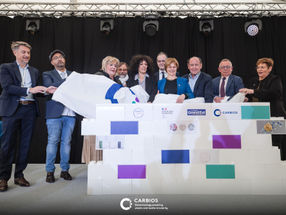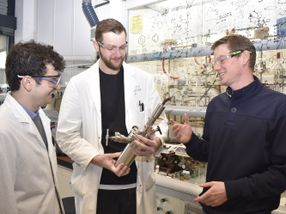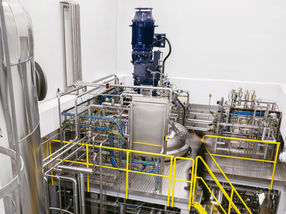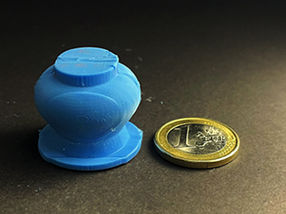BASF: Weathering the storm
BASF has continued to weather difficult economic conditions. All of BASF's segments posted positive earnings before special items in the second quarter of 2001. The Oil & Gas segment was particularly successful: Here, sales in the second quarter increased almost 30 percent compared with 2000. Income from operations before special items increased by more than 50 percent to €378 million.
In the Agricultural Products & Nutrition segment, second-quarter sales in the Agricultural Products division were up more than 40 percent and income from operations before special items climbed almost 17 percent to €133 million compared with the same period in 2000. A look at the results of the first half of 2001 shows the strength of BASF's expanded agricultural products business: Both sales and income from operations almost doubled compared with the first half of 2000.
Chemical businesses are particularly hard hit by the currently weak demand and the volatile prices for raw materials. Contrary to previous estimates that the year's average price for Brent crude oil would be around $25 per barrel, BASF was confronted with prices that were up to $5 per barrel higher in the first half of the year. As a result, the prices of naphtha and other important raw materials were very high. Unusually volatile naphtha prices are continuing to put BASF's margins under pressure.
Extraordinary efforts needed to achieve financial goal
From the basis of current economic conditions, BASF will achieve its ambitious financial goal of increasing its income from operations on the basis of ongoing business before special items by an average of 10 percent per year in 2000 through 2002 only through extraordinary efforts, according to Dr. Jürgen F. Strube, Chairman of the Board of Executive Directors of BASF Aktiengesellschaft. At the same time, he said, a significant economic upturn in the majority of OECD countries by no later than the turn of the year will be necessary. Under the current conditions of volatility we have to accept that the good full-year results we achieved in 2000 will not be reached this year," said Strube. BASF's long-term goal is adding value through growth and innovation. To achieve this goal, BASF's Board has implemented a series of coordinated programs and initiatives.
As a result of these measures, BASF wants to achieve annual cost advantages of €400 million from the streamlining of its organization globally. BASF expects to save an additional €160 million by the end of 2002 by further optimizing its global procurement of technical goods and services. Site and plant closures will lead to cost savings of €190 million. In addition, BASF will reduce capital expenditures in 2002 by €400 million in line with the changed expectations in the market. In addition to the measures and closures it has already announced, BASF intends to reduce its global workforce by a further 1,200 in the coming 18 months. The number of job reductions will therefore total 4,000.
To implement this package of measures, BASF recorded special items of almost €450 million in the second quarter. These were related mainly to current and future site and plant closures as well as accelerated restructuring. In particular, €126 million are associated with the site in Birkenhead, United Kingdom, which will not be rebuilt following a fire.
BASF reaffirms its aim of buying back shares for €1.3 billion by the end of the year. In the first half of 2001, BASF repurchased about 410,000 shares for €19 million. The primary aim of the program is to reduce BASF's equity ratio and costs of capital. BASF will also continue its share buy-back program in 2002.
Most read news
Organizations
Other news from the department business & finance

Get the chemical industry in your inbox
From now on, don't miss a thing: Our newsletter for the chemical industry, analytics, lab technology and process engineering brings you up to date every Tuesday and Thursday. The latest industry news, product highlights and innovations - compact and easy to understand in your inbox. Researched by us so you don't have to.
